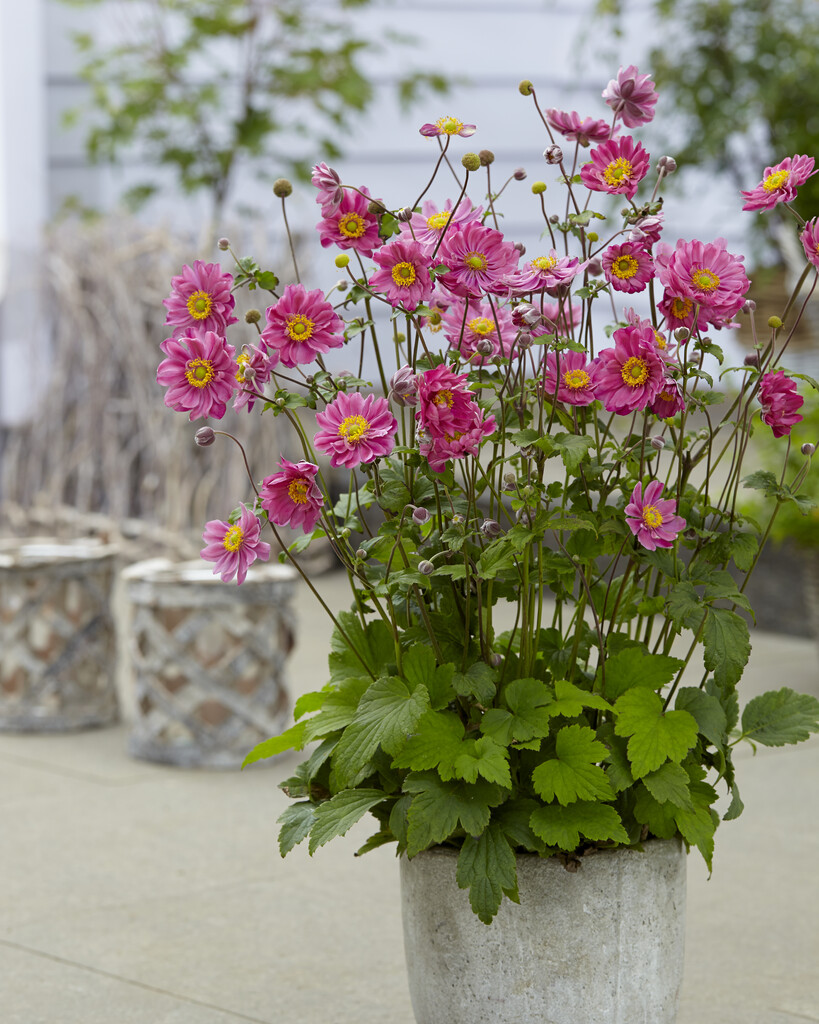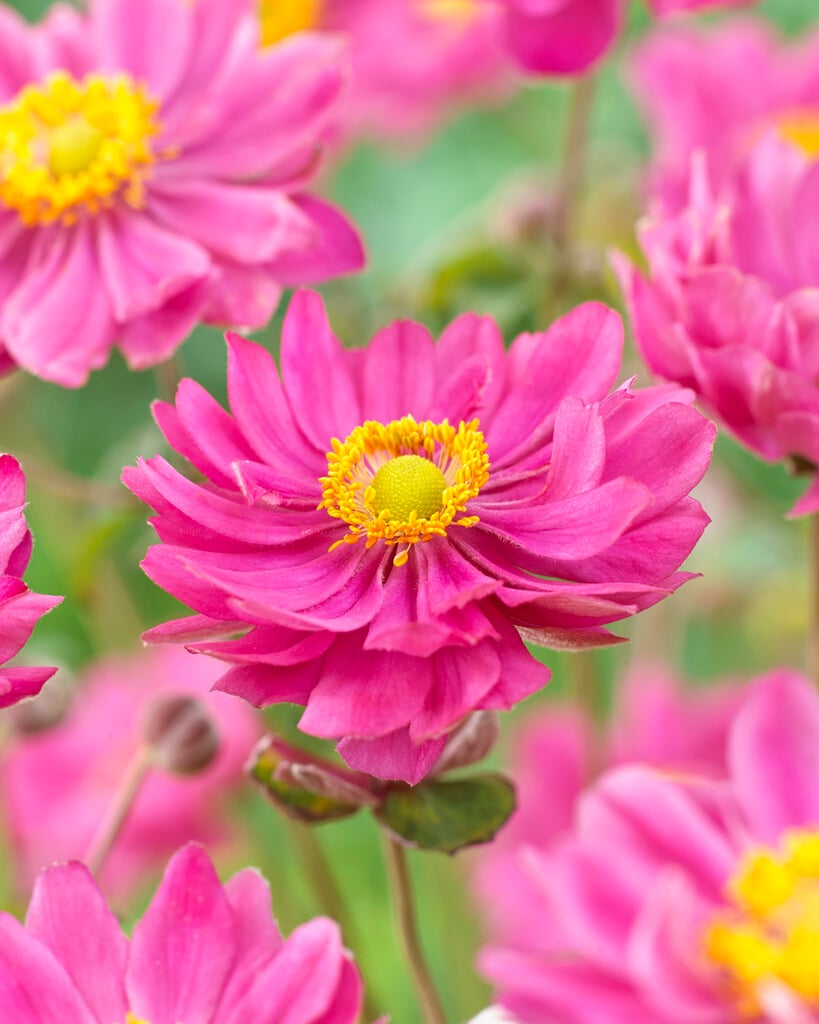Anemone × hybrida 'Montrose'
Japanese anemone 'Montrose'
Clump-forming, deciduous perennial to 1.2m tall, with ruffled mid-green foliage and upright, wiry, branching stems bearing delicate semi-double, clear light pink flowers to 8cm across, with a darker reverse, narrow petals and yellow centres, from late summer into autumn
Synonyms
Anemone × hybrida 'Lady Gilmour' misappliedAnemone × hybrida 'Margarete' misapplied
see moreAnemone × hybrida 'Monterosa'
Anemone × hybrida 'Mont Rose'
Size
Ultimate height
0.5–1 metresTime to ultimate height
2–5 yearsUltimate spread
0.5–1 metresGrowing conditions
Moisture
Moist but well–drainedpH
Acid, Alkaline, NeutralColour & scent
| Stem | Flower | Foliage | Fruit | |
| Spring | Green | |||
|---|---|---|---|---|
| Summer | Pink | Green | ||
| Autumn | Pink | Green | ||
| Winter |
Position
- Full sun
- Partial shade
Aspect
North–facing or South–facing or East–facing or West–facing
Exposure
Sheltered Hardiness
H7Botanical details
- Family
- Ranunculaceae
- Native to GB / Ireland
- No
- Foliage
- Deciduous
- Habit
- Clump forming
- Genus
Anemone are herbaceous perennials with fibrous, rhizomatous or tuberous rootstocks, palmately lobed leaves and saucer-shaped, usually 5-petalled flowers
- Name status
Accepted
How to grow
Cultivation
Will grow in any garden soil but avoid excessive winter wet, dislikes being moved around. Can spread rapidly once established and has the potential to become a nuisance. See anemone cultivation
Propagation
Propagate by division or root cuttings
Suggested planting locations and garden types
- Coastal
- Cottage and informal garden
- City and courtyard gardens
- Wildlife gardens
- Flower borders and beds
- Cut flowers
Pruning
Cut back flowered stems in late autumn
Pests
May be susceptible to leaf eelworm, caterpillars and slugs
Diseases
May be susceptible to Powdery mildews
Love gardening
Sign up to receive regular gardening tips, inspiration, offers and more
View our Privacy Policy
Get involved
The Royal Horticultural Society is the UK’s leading gardening charity. We aim to enrich everyone’s life through plants, and make the UK a greener and more beautiful place.

